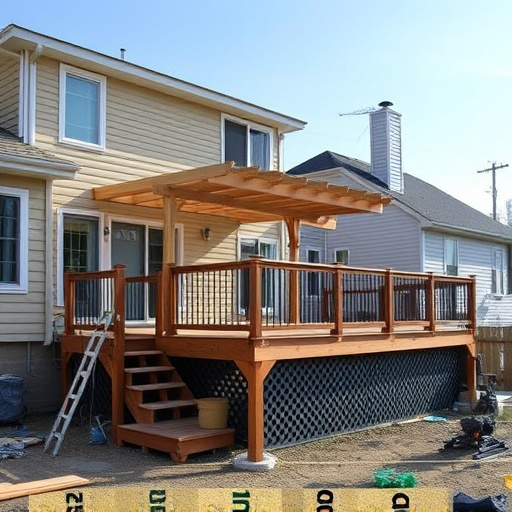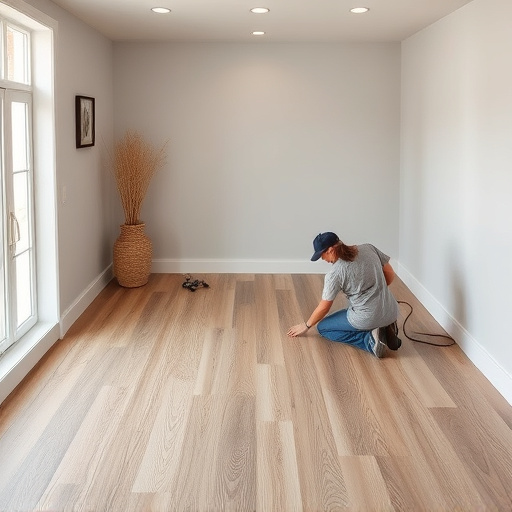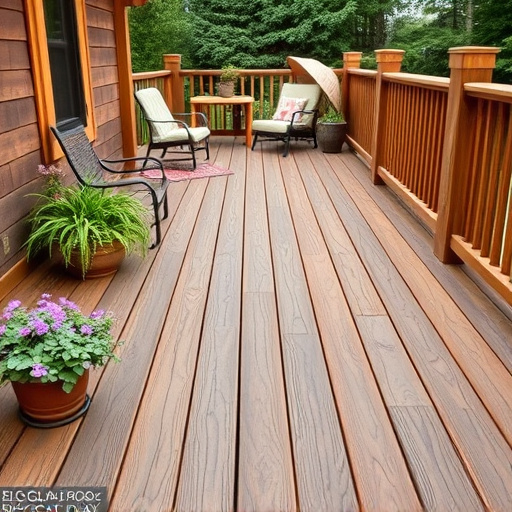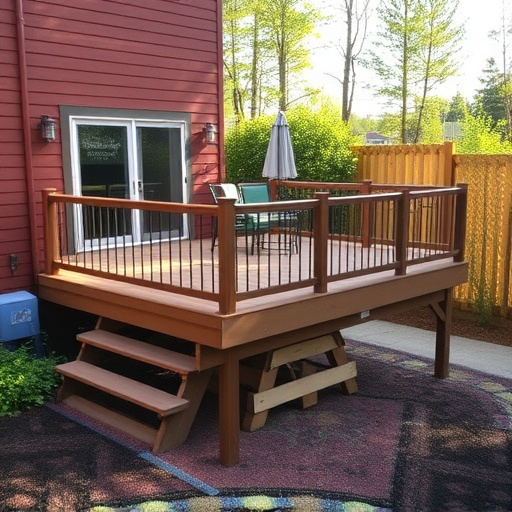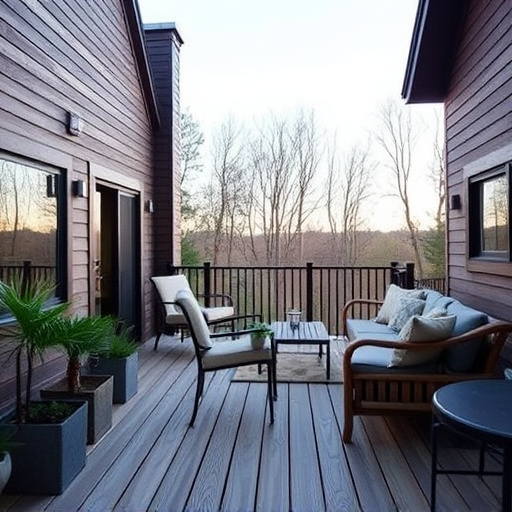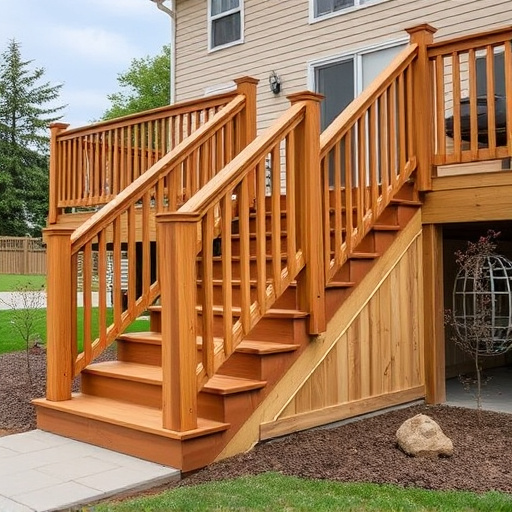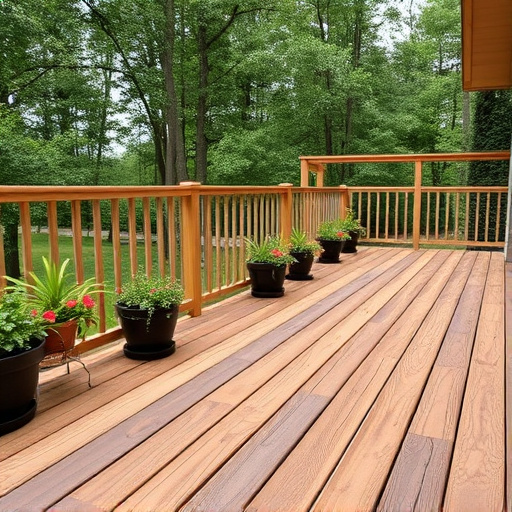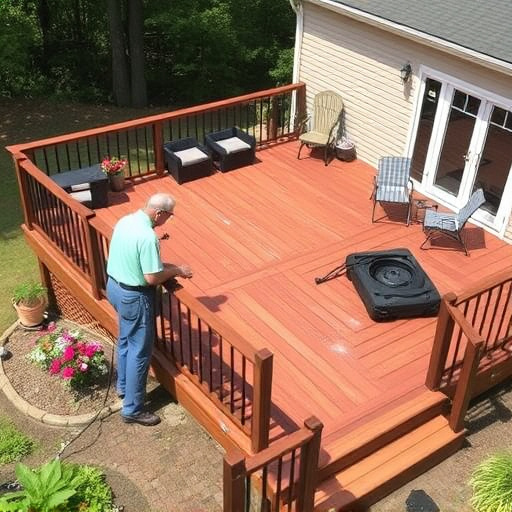Choosing sustainable deck boards is vital for eco-friendly outdoor spaces. Options include composite materials, recycled plastic, and certified tropical hardwoods, offering rot resistance and reduced maintenance. Consumers can select from recycled lumber or composite decking, both minimizing environmental impact and deck board waste. Consider material durability, weather resistance, and aesthetic appeal to ensure long-term stability and enhance home aesthetics.
Choosing sustainable deck boards is an eco-conscious decision that enhances both your outdoor space and the environment. This guide will help you navigate the options, ensuring longevity and beauty. We’ll explore the fundamentals of deck boards, delve into sustainable materials, and provide insights on factors crucial for a durable and aesthetically pleasing deck. From recycled plastics to natural woods, discover eco-friendly choices that cater to your needs while minimizing environmental impact.
- Understanding Deck Boards: Materials Matter
- Sustainable Options: Eco-Friendly Choices
- Factors to Consider for Longevity and Beauty
Understanding Deck Boards: Materials Matter
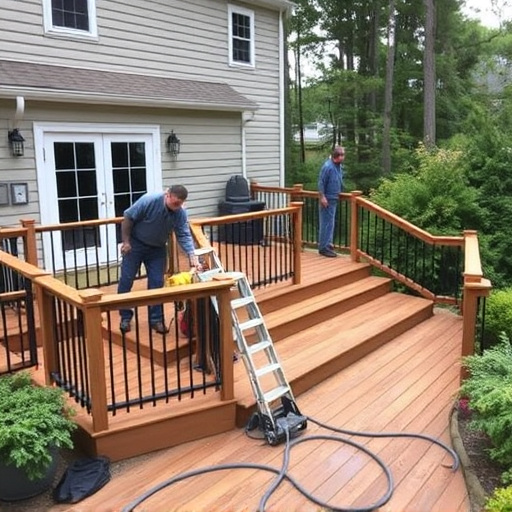
Choosing sustainable deck boards is a crucial step in creating an eco-friendly outdoor living space. Deck boards, the structural components that form the surface of a deck, have a significant environmental impact due to their longevity and frequent replacement needs. Understanding the materials used in deck boards is key to making an informed decision.
Traditional deck boards are often made from wood, which, while renewable, can contribute to deforestation if not sourced responsibly. Alternatives include composite materials, recycled plastic, and tropical hardwoods certified by reputable sustainability organizations. Each option offers unique benefits; for instance, composite boards are resistant to rot and require less maintenance than wood. Commercial roofing services and roof repair experts often consider the environmental impact of deck board materials, promoting sustainable choices that contribute to a greener building industry.
Sustainable Options: Eco-Friendly Choices
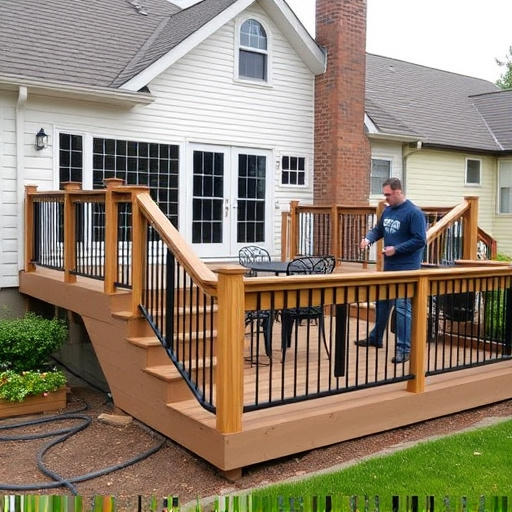
When it comes to sustainable deck boards, there are numerous eco-friendly options available that offer both performance and aesthetics. One prominent choice is recycled plastic lumber, which is made from post-consumer waste like plastic bottles and bags. This material is incredibly durable, resistant to rot, and requires minimal maintenance—a significant win for the environment. It’s a long-lasting alternative that reduces the demand for new resources and minimizes deck board waste ending up in landfills.
Another sustainable option is composite decking, a blend of wood fibers and plastic. Composite decks are known for their low maintenance, attractive appearance, and versatility in design. They can mimic the look of natural wood while offering better performance against moisture and pests. Moreover, many composite manufacturers use recycled materials in their production processes, further contributing to sustainability efforts, especially when combined with proper disposal and recycling practices—a key consideration when exploring any deck board material, including those offered by roofing consulting firms and roofing services providers, as well as siding and gutters specialists.
Factors to Consider for Longevity and Beauty
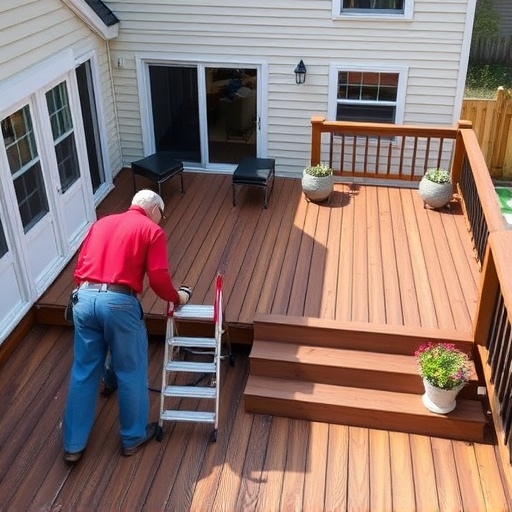
When selecting deck boards for both longevity and aesthetic appeal, several key factors come into play. Firstly, consider the material’s resistance to weather conditions like sun exposure, rain, and snow, as these elements can significantly impact a deck’s durability over time. Natural materials such as hardwoods offer exceptional beauty but may require more frequent maintenance due to their porosity. On the other hand, composite decking is highly durable against rot, mold, and insects, making it a popular choice for long-term investment.
The stability of the deck boards is another crucial aspect. Opting for high-quality materials ensures that your deck retains its shape and integrity over time, preventing warping or splitting. This longevity translates into reduced siding replacement needs in the future and saves you from additional home service solutions. Additionally, the color and grain pattern should complement your home’s exterior, creating a cohesive look, much like how roof repair can enhance a building’s overall aesthetics.
Choosing sustainable deck boards is not just an eco-conscious decision, but also a smart investment. By opting for environmentally friendly materials, you contribute to reducing waste and preserving natural resources. Consider the factors discussed—durability, aesthetics, and environmental impact—to make an informed choice that enhances your outdoor space while benefiting the planet. When selecting deck boards, remember that “materials matter” in ensuring longevity, beauty, and sustainability for years to come.


